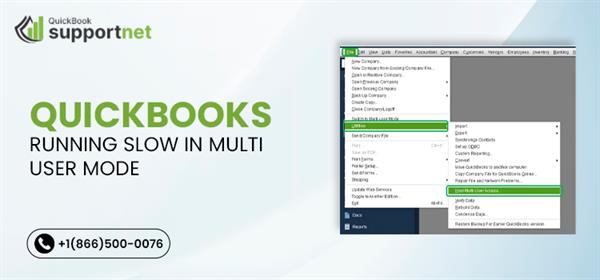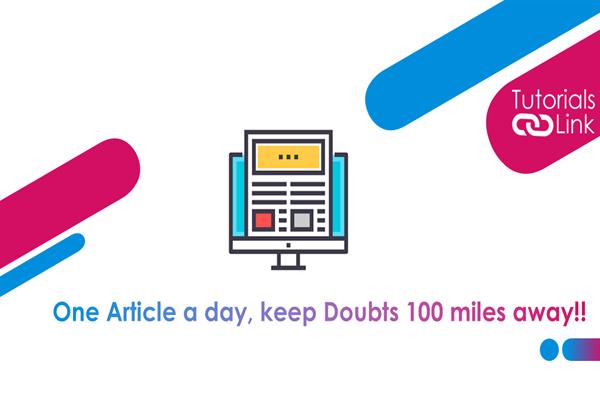QuickBooks Running Slow in Multi-User Mode – Causes, Fixes, and Optimization Tips
If your QuickBooks is running slow in multi-user mode, you’re not alone. Many business owners face lag, freezing, or delayed file access when multiple users work on the same company file simultaneously. This performance issue often stems from large data files, network misconfigurations, or server resource limitations. But don’t worry—this guide will walk you through the reasons, fixes, and optimization steps to get your QuickBooks Desktop running smoothly again. For immediate assistance, contact certified QuickBooks experts at +1(866)500-0076 for personalized support.
QuickBooks running slow in multi-user mode is often caused by large company files, network latency, or database server issues. Follow these steps to optimize performance.

Why QuickBooks Runs Slow in Multi-User Mode
When QuickBooks Desktop operates in multi-user mode, it relies on real-time communication between the QuickBooks Database Server Manager and the host computer. Any disruption in that connection can slow things down significantly.
Common Causes Include:
-
Large or fragmented company files (.QBW)
– Over time, your QuickBooks file may grow beyond optimal size, slowing down data retrieval. -
Slow network connection or latency issues
– Weak network performance or outdated hardware can cause lag in multi-user environments. -
Improper hosting configuration
– When hosting settings aren’t configured correctly, QuickBooks may take longer to sync data. -
Insufficient server resources
– Low RAM or CPU performance on the hosting computer can lead to QuickBooks slowness. -
Firewall or antivirus interference
– Overprotective security software can block QuickBooks from smooth network communication.
How to Fix QuickBooks Running Slow in Multi-User Mode
Here are the most effective ways to boost QuickBooks Desktop performance and minimize lag across your network.
1. Optimize Your QuickBooks Company File
If your company file is too large, QuickBooks performance will degrade.
Solution:
-
Run the Verify and Rebuild Data Tool from within QuickBooks to detect and fix file issues.
-
Use Condense Data Utility to reduce file size safely.
-
Avoid keeping unnecessary historical transactions or old attachments in the main file.
This helps streamline file access and reduces processing load on the database server.
2. Check and Improve Network Configuration
QuickBooks multi-user mode depends on stable network communication.
Steps:
-
Download and open QuickBooks Tool Hub (latest version).
-
Go to Network Issues and select QuickBooks Database Server Manager.
-
Scan the folders where your company files are stored.
-
Ensure all computers are connected to the same network and have consistent speed.
You can also run a ping test between workstations and the host to check latency. Ideally, the delay should be below 1ms for optimal QuickBooks performance.
3. Increase Server Resources
If your server or hosting computer doesn’t meet QuickBooks system requirements, the software may lag.
Recommendations:
-
Add more RAM (16GB or higher) to the server.
-
Use an SSD drive for faster data access.
-
Close unused background applications that consume CPU power.
Hosting QuickBooks on a dedicated, high-performance server or a cloud platform can also significantly improve speed.
4. Adjust QuickBooks Hosting Mode Settings
Improper hosting configurations can create conflicts between systems.
To check:
-
Open QuickBooks on each workstation.
-
Go to File → Utilities.
-
Ensure only the server computer shows “Host Multi-User Access.”
-
On all other systems, disable hosting (it should show “Stop Hosting Multi-User Access”).
This ensures that the host handles data synchronization properly while other users simply connect to it.
5. Configure Windows Firewall and Antivirus Settings
Firewalls and antivirus programs can block essential QuickBooks ports.
Fix:
-
Open Windows Defender Firewall → Advanced Settings → Inbound Rules.
-
Allow QuickBooks Database Server Manager and QuickBooks Desktop executable files through the firewall.
-
Add exceptions for QuickBooks ports (8019, 56728, 55378–55382).
You can also whitelist QuickBooks in your antivirus to prevent unnecessary scanning during operation.
6. Update QuickBooks and Windows Regularly
Outdated software can cause compatibility and performance issues.
Make sure you:
-
Update QuickBooks Desktop to the latest release.
-
Install the latest Windows updates and drivers.
-
Check for updates to QuickBooks Database Server Manager.
Keeping everything up to date ensures better performance, stability, and network connectivity.
When to Contact QuickBooks Support
If QuickBooks remains slow after applying the above fixes, there could be deep-level network or file corruption. In such cases, it’s best to reach out to professional support. Certified technicians can analyze your network, server, and company file to identify the exact root cause and implement tailored solutions.
For expert help, call QuickBooks Support at +1(866)500-0076 for advanced diagnostics and optimization assistance.
Conclusion
When QuickBooks runs slow in multi-user mode, it’s often due to a mix of file size issues, network delays, and system limitations. By optimizing your company file, ensuring proper hosting setup, improving server performance, and configuring your network correctly, you can restore QuickBooks to full speed. Regular maintenance and software updates also go a long way toward preventing future performance drops.
If slowness continues or affects your daily operations, don’t hesitate to contact professional QuickBooks experts at +1(866)500-0076 to get your system running efficiently again.
Frequently Asked Questions
Q1. Why does QuickBooks run slow in multi-user mode?
QuickBooks may slow down due to large company files, insufficient network bandwidth, or incorrect hosting settings. Optimizing your file and checking network configurations usually resolves it.
Q2. How can I improve QuickBooks performance on a network?
Upgrade server resources, use SSDs, configure the firewall properly, and ensure your network connection is stable and fast.
Q3. Does the QuickBooks Database Server Manager affect performance?
Yes. The Database Server Manager is responsible for managing multi-user connections, and misconfiguration can cause lag and delays.
Q4. Can antivirus software slow down QuickBooks?
Yes. Some antivirus programs block QuickBooks processes. Adding QuickBooks to your antivirus exception list often improves performance.
Q5. What should I do if QuickBooks remains slow even after troubleshooting?
If you’ve tried all fixes and QuickBooks is still lagging, contact QuickBooks Support at +1(866)500-0076 for professional assistance and network optimization.
Read Also: QuickBooks error 6123





